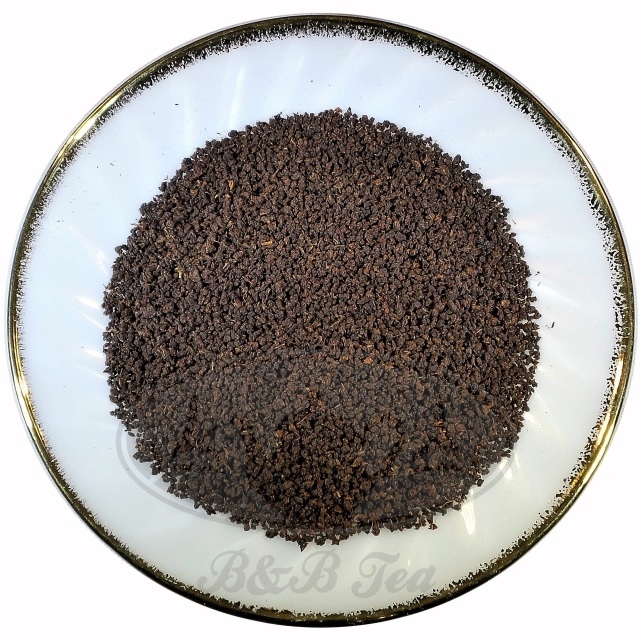- English Classics
- >
- Irish Breakfast
Irish Breakfast
SKU:
$1.25
1.25
26.25
$1.25 - $26.25
Unavailable
per item
Description
A stout robust blend of February Kenya BP1 and 2nd flush Assam with a superb color and very full bodied. Excellent in the early morning or afternoon.
Tell Me MoreAs with most teas, the longer you brew this tea the stronger it becomes. If you're Irish, you'll let this tea brew a good long time and then add a wee splash of milk. Milk, in the case of a tea this strong cancels out the tannins and diminishes the bitterness that can characterize some strong teas. Debate rages from Dublin to Tipperary as to when milk should be added - before the tea or after? The milk-first camp argues that milk added after the hot tea will scald and should therefore be added first so it can warm as the tea is poured. Milk-last devotees argue that the only way to properly measure the amount to add is to pour it last. (Non-users of milk regard the whole issue as quite silly.) In order to provide the Irish with blends this strong, tea blenders supplying the market buy up top quality seasonal output from Assam and Kenya. The Assam teas are picked from the top production of the Second Flush, a period of high growth in the month of June. The Kenyans selected are usually those produced in either February or August when the most flavorful seasonal quality leaf is grown. The Assam component of this Irish blend gives the cup a strong, deep malty character with heavy layers of astringency that dry the mouth, feeling almost as if you could chew the tea. (This is similar to the way a very dry wine can make you pucker.) The Kenyan teas provide a bright coppery color with profound floral notes that add a complex depth to the cup.
Either way, t'is a strong blend. Enjoy in the morning with toast, or a traditional Irish "fry-up!" |
Brewing for Best ResultsIdeal Brewing Temperature: 209°F/98°C.
Minimum Brewing Temperature: 190°F/89°C. Bring filtered or freshly drawn cold water to 209°F/ 98°C. Place 1 slightly heaping teaspoon of loose tea per 8 oz of fluid water. Steep 3-5 minutes according to taste (the longer the steeping time, the stronger the tea). Acceptable Pairings: Milk / Sweetener / Lemon / Mint |
origin
Tea(s) From: Kenya, India Region(s): Nandi Highlands, Assam 98% Ethical Tea Partner 50% Fair Trade Tea ingredients
Luxury Ingredients: Black tea iced tea instructions
Per Serving: Bring filtered or freshly drawn cold water to 209°F/ 98°C. With and infuser, use 1 slightly heaping teaspoon of loose tea per 6-7 oz of fluid water. Steep 5 minutes. Add filtered hot tea to 16 oz glass filled with ice. (Some luxury teas will turn cloudy when poured over ice). Per Pitcher: Makes 1 Quart. Bring filtered or freshly drawn cold water to 209°F/ 98°C. Place 6 slightly heaping teaspoon of loose tea in a heat resistant container. Pour 1 ¼ cup of prepared water over the tea leaves. Steep 5 minutes. With a fine mesh sieve, filter the hot tea liquor to the serving pitcher filled with ice. Add cold filtered water to top off. (Some luxury teas will turn cloudy when poured over ice). brewing tips
Making an amazing cup of tea requires several things. High quality tea, filtered or freshly drawn cold water, correct water temperature, time of infusion, and filters/infusers. Unfiltered water or too hot of water can ruin the best of teas. Always use filtered or freshly drawn cold water. Any flavor from water treatments or heavy minerals such as lime or calcium can taint the water. Brew at the ideal temperature. Too hot of water can scorch the leaves and produce a bitter brew. If you find that the tea is still bitter following the recommended brewing temperature, try lowering the brew temperature another 5 to 10 degrees. Use infusers that allow the tea leaves to fully expand and has full contact with the water. Ditch the tea bags. Know the steeping time for your tea. Too long of steeping can make your tea bitter and undesirable. Too short of time will make a weak tea. Don’t make tea in the microwave. food safety
We strongly recommend using filtered or freshly drawn cold water brought to a rolling boil when brewing all types of tea. Today’s water has been known to carry viruses, parasites and bacteria. Boiling the water will kill these elements and reduce the potential incidence of water-borne illness. Cool the water to the ideal brewing temperature before brewing. |

